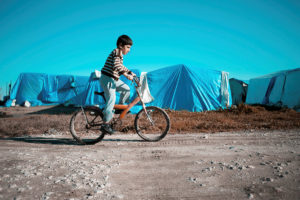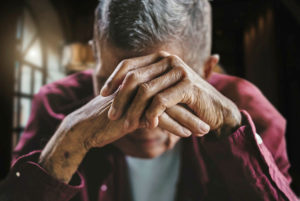
The World Federation for Mental Health’s World Mental Health Day 2021 falls on October 10th and researchers are being encouraged to share what they know about mental health inequality and ideas about how to tackle this. Many research studies into the treatment and prevention of mental health conditions are taking place, such that ‘Mental and behavioural disorders’ is the most commonly applied condition category for research registered in the ISRCTN registry.
The theme of ‘Mental Health in an Unequal World’ aims to raise awareness of the inequality in access to mental health care, both locally and globally, for marginalised people, particularly for people living in poverty. According to UN 2016 data, “nearly 800,000 persons died every year by suicide, and 79 per cent of global suicides occurred in low- and middle-income countries”.
The United Nations has set ensuring healthy lives and promoting mental health and well-being for people as one of its sustainable development goals. The UN sustainable development target 3.4 is to reduce premature mortality from non-communicable diseases, such as mental health conditions, by one-third by 2030 through prevention and treatment and the promotion of mental health and well-being.
One such study that is investigating methods to tackle mental health inequality is the ongoing ReSHaPe trial. This study aims to develop an online program that will improve recognition, self-help, and help-seeking for depressive and anxiety symptoms among low-socioeconomic households in Malaysia. The intervention was designed in response to the National Health and Morbidity Survey in Malaysia which showed a high level of mental health issues among the low-income population compared to those with higher incomes.
Similarly, a National Mental Health Study in Colombia found high levels of mental distress and illness and poor access to treatment in Colombia’s children and adolescents, including high levels of post-traumatic stress symptoms, following a period of armed conflict. A research study has adapted the DIALOG+ mental health intervention for use in Colombian schools to improve the mental health, resilience, and quality of life of adolescents in post-conflict Colombia during the COVID-19 pandemic.

People living in challenged humanitarian settings such as displaced people, refugees, and those living in conflict/post-conflict situations are at greater risk of mental health difficulties. For children in these settings, their caregivers act as their main protective factors.
The Strong Families program was developed specifically for use in low resource settings and was piloted in families living in Afghanistan. The results suggested that this program was effective and feasible in a resource-limited setting and improved child mental health, parenting practices, and family adjustment skills. The effectiveness and acceptability of the Strong Families intervention is now also being evaluated in families living in Iran.
Due to ongoing political and social conflicts, the number of international refugees has been increasing. Refugees are exposed to severe mental challenges and potentially subject to traumatic experiences so the risk of psychiatric disorders is increased. The REMEX study is investigating the effects of an exercise and sport intervention among refugees living in a Greek refugee camp on mental health.
Older people and immigrant groups are both thought to be more likely to experience social isolation and loneliness which can cause worse mental wellbeing. A peer-based intervention using home visits and telephone calls from volunteers to provide emotional support, problem-solving support, and community resource sharing was developed to reduce the social isolation of older Chinese immigrants in Canada.

The results of this trial suggested a decrease in loneliness and an increase in resilience in the older people who received the intervention as well as fewer barriers to social participation, fewer depressive symptoms, increased life satisfaction, and happiness.
Societal discrimination is likely to have an impact on mental health. Interventions that take into account the specific mental health risks that marginalised communities face, and are designed to meet the needs of these groups, are therefore needed. The Rainbow Mind study uses one such intervention of mindfulness and compassion-based self-care which has been designed for the LGBTQIA+ community in the UK. Additionally, cultural background may play a role in a person’s beliefs about mental illness, their experience of mental illness, and the efficacy of treatment. Researchers are investigating approaches that address this, for example in the ECAT-D trial which aims to evaluate a culturally adapted faith-based treatment approach for Muslim clients with depression in Bradford.
Similarly, there are significant mental health related inequalities for the UK Black community as people from Black African and Caribbean backgrounds are four times more likely to be detained under the Mental Health Act, and experience poorer treatment and recovery outcomes in comparison to other ethnic groups. The ON TRAC project aims to address this by developing a mental health awareness and stigma reduction intervention for Black faith communities.
Access to mental health care and support is as crucial as ever during the COVID-19 pandemic. The COVID-19 pandemic has highlighted the effects of inequality on health outcomes and has brought additional mental health challenges through infection and illness, bereavement, job loss and insecurity, and social isolation due to physical distancing measures. The COVID-19 pandemic has also led to an increase in using remote methods to deliver care which could allow patients greater access to information and additional support between appointments, but in some resource-limited settings may not be accessible to participants.
A collection of research compiled by Springer Nature to commemorate World Mental Health Day 2021 can be found on our landing page. You can also find out more about the UN’s sustainable development goals and what we are doing at Springer Nature to support these goals.
Comments